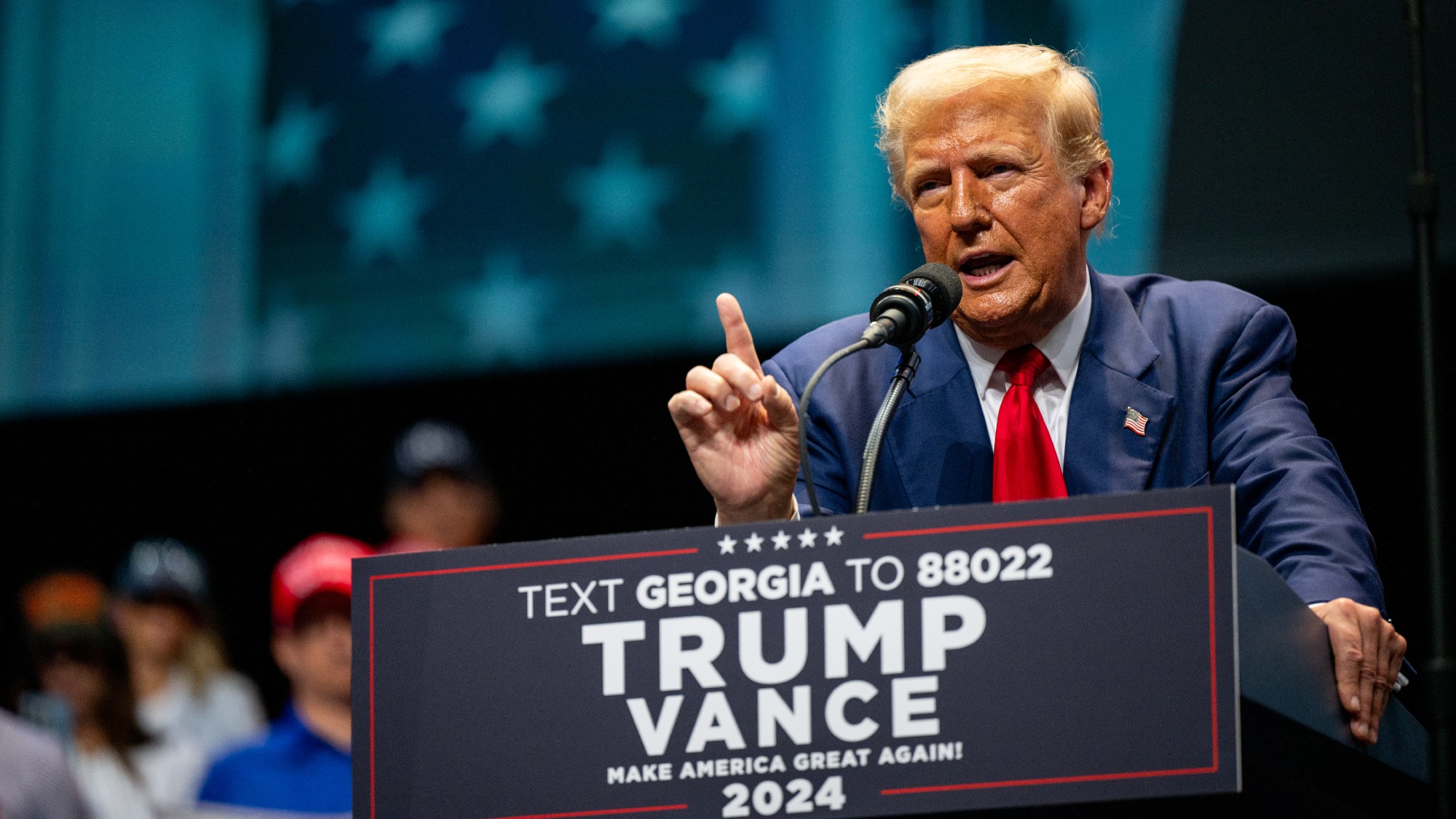Hyperbole and hatred: can heated rhetoric kill?
Hypocrisy and double standards are certainly rife, but the link between heated political language and real-world violence is unclear

A free daily email with the biggest news stories of the day – and the best features from TheWeek.com
You are now subscribed
Your newsletter sign-up was successful
"The classic example of chutzpah," said Jamelle Bouie in The New York Times, "is that of the child who murders his parents and then pleads for mercy as an orphan." The 2024 presidential election has given us a new version: the candidate who merrily stokes hatred and division, then turns around to condemn his opponents' harsh language.
Following the second assassination attempt on Donald Trump, his running mate J.D. Vance took a break from spreading inflammatory lies about Haitian migrants eating pets to make a cynical plea for reasonable discourse. "Look," he declared, "we can disagree with one another, we can debate one another, but we cannot tell the American people that one candidate is a fascist and, if he's elected, it is going to be the end of American democracy." The Left needs to "tone down" its language, he said, or "somebody is gonna get hurt". Trump himself claimed that the Democrats' rhetoric "is causing me to be shot at". This is the man who told his supporters to "fight like hell" to regain the White House before the 6 January riots, and who has consistently abused his political rivals.
Typical of Trump to turn the violence against him "into fuel for more political hatred", said Tom Nichols in The Atlantic. In 1975, President Gerald Ford survived two assassination attempts in a little over two weeks. He didn't blame his opponents, or seek to fundraise off the back of the attacks; he just started wearing a trench coat with a zip-in Kevlar vest.
The Week
Escape your echo chamber. Get the facts behind the news, plus analysis from multiple perspectives.

Sign up for The Week's Free Newsletters
From our morning news briefing to a weekly Good News Newsletter, get the best of The Week delivered directly to your inbox.
From our morning news briefing to a weekly Good News Newsletter, get the best of The Week delivered directly to your inbox.
There's hypocrisy on all sides here, said Robby Soave in Reason. Trump has called Kamala Harris a fascist, and Vance himself once described Trump as America's Hitler. In 2011, Republicans rightly criticised the Democrats for "lazily and falsely" seeking to blame them for the shooting of the Democrat congresswoman Gabby Giffords by a disturbed loner. We should be wary of attempts to "draw any causal line" between heated political language and real-world violence.
It would be nice, though, if public debate in the US could be a little less overwrought, said John Halpin on Substack. One problem is that presidential elections are just too long. Other nations, such as the UK, wrap up their campaigns in weeks. When the US votes in November, it will have been "waging presidential warfare for 700-plus days": two years of incessant arguing and hyperbole.
Every election is now "the most important election of our lifetime" as the two polarised parties and their media cheerleaders raise the stakes to absurd levels. If the other side wins it means "communism" or "fascism" and "civil war". It's enough to "drive decent people crazy – and crazy people even nuttier". In an ideal world, we'd simplify the process. But given all the money to be made selling chaos, rage and mutual loathing, "nothing much is likely to change".
A free daily email with the biggest news stories of the day – and the best features from TheWeek.com
-
 Local elections 2026: where are they and who is expected to win?
Local elections 2026: where are they and who is expected to win?The Explainer Labour is braced for heavy losses and U-turn on postponing some council elections hasn’t helped the party’s prospects
-
 6 of the world’s most accessible destinations
6 of the world’s most accessible destinationsThe Week Recommends Experience all of Berlin, Singapore and Sydney
-
 How the FCC’s ‘equal time’ rule works
How the FCC’s ‘equal time’ rule worksIn the Spotlight The law is at the heart of the Colbert-CBS conflict
-
 ‘Poor time management isn’t just an inconvenience’
‘Poor time management isn’t just an inconvenience’Instant Opinion Opinion, comment and editorials of the day
-
 Witkoff and Kushner tackle Ukraine, Iran in Geneva
Witkoff and Kushner tackle Ukraine, Iran in GenevaSpeed Read Steve Witkoff and Jared Kushner held negotiations aimed at securing a nuclear deal with Iran and an end to Russia’s war in Ukraine
-
 ‘The forces he united still shape the Democratic Party’
‘The forces he united still shape the Democratic Party’Instant Opinion Opinion, comment and editorials of the day
-
 Kurt Olsen: Trump’s ‘Stop the Steal’ lawyer playing a major White House role
Kurt Olsen: Trump’s ‘Stop the Steal’ lawyer playing a major White House roleIn the Spotlight Olsen reportedly has access to significant US intelligence
-
 Trump’s EPA kills legal basis for federal climate policy
Trump’s EPA kills legal basis for federal climate policySpeed Read The government’s authority to regulate several planet-warming pollutants has been repealed
-
 House votes to end Trump’s Canada tariffs
House votes to end Trump’s Canada tariffsSpeed Read Six Republicans joined with Democrats to repeal the president’s tariffs
-
 Bondi, Democrats clash over Epstein in hearing
Bondi, Democrats clash over Epstein in hearingSpeed Read Attorney General Pam Bondi ignored survivors of convicted sex offender Jeffrey Epstein and demanded that Democrats apologize to Trump
-
 Judge blocks Trump suit for Michigan voter rolls
Judge blocks Trump suit for Michigan voter rollsSpeed Read A Trump-appointed federal judge rejected the administration’s demand for voters’ personal data